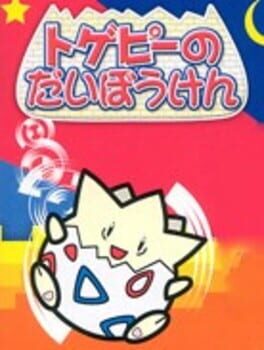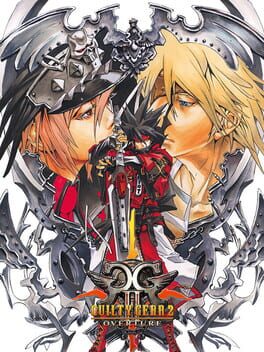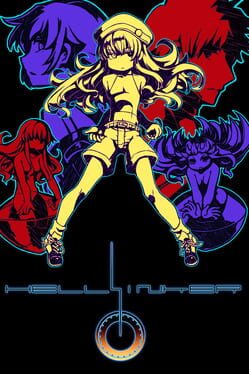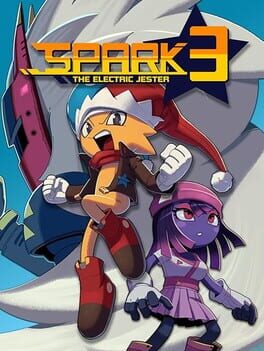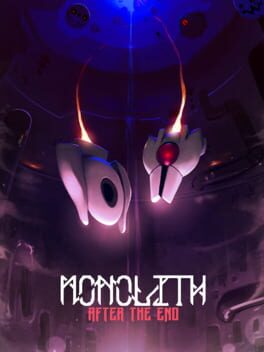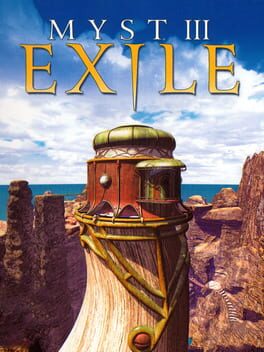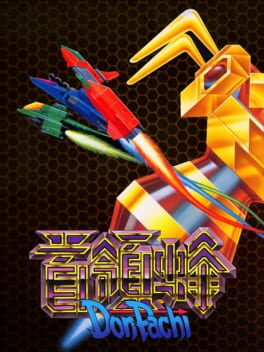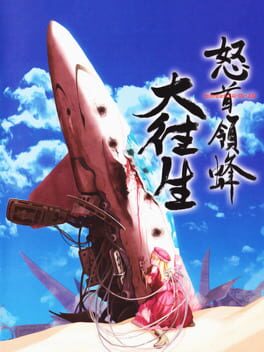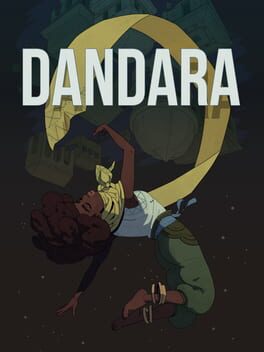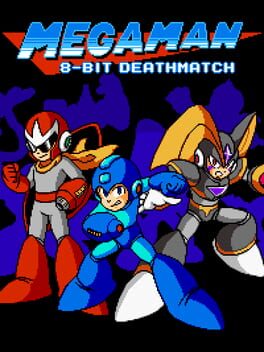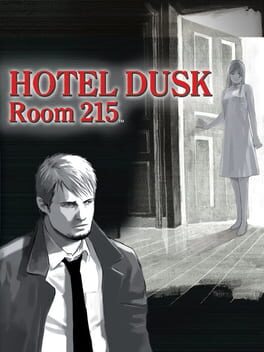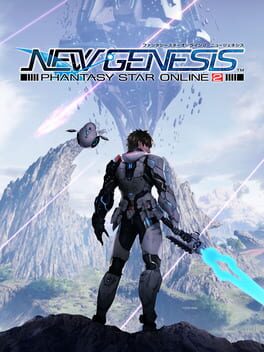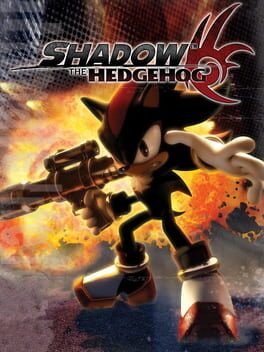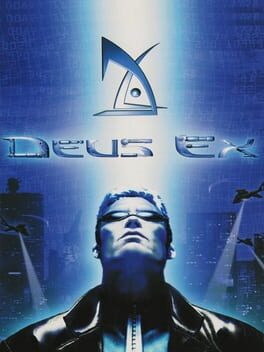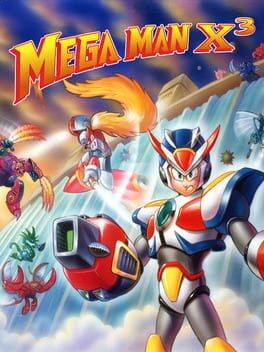Emm
2002
(NOTE: This review is a discussion of the Pokemon Mini's library in totality rather than just a single game, I picked the Togepi's Great Adventure page in particular to put this on cuz it's my favorite one and I'm not gonna log all of these lol)
Nostalgia can be found for virtually every handheld released from the heavy hitters after a certain point but there's a corner in this space that's not fondly reminisced on nearly as much, that being the 90s and early 2000s standalone single-game LCD handhelds. Sure, people have plenty of nostalgia for tamagotchi, but that's more nostalgia for tamagotchi rather than the format of the devices themselves, although that can still play a part through the association. I'd say the same for how we view the Game and Watch, it usually gets segmented into its own bubble. Generally, though, this type of handheld arguably has more of a negative connotation a lot of the time--the Tiger Electronics of the world, the devices that are just portable chess or whatever, every company ripping each other off, many of these are still cool in their own way but they've also been largely viewed as disposable, a forgotten side step while all the juggernauts were moving on to greener pastures, you can play chess on your smartphone alongside a million other games now after all.
Which makes the Pokemon Mini odd, because it's... not doing that. It's a 2001 cartridge system and manufactured by Nintendo? And also has nearly a dozen purchasable games instead of only whatever's built in?? Is this perhaps some secret kino that we've all been missing out o--nah not really. It is, however, extremely fascinating and I honestly love it, it certainly deserves to be more than throwaway trivia video fodder.
Ironic to say, because let's rip the band-aid off now: half of the library is mini-game collections. Bad mini-game collections. The goal of one mini-game in Pokemon Party is to frantically shake the machine as many times as possible until it tells you not to. Another mini-game in the same collection is Simon Says. One game in Puzzle Collection Volume 1 is a slow tile sliding puzzle. The games in the Pichu Bros. collection are... Fuck, I already can't remember. (Except the skateboarding one because who doesn't wanna see Pichu absolutely shredding it)
So yeah, unfortunately validating the stigma that plagued the worst of devices like these. More disappointing than that though is how little these games actually have to do with Pokemon. There's a mode in Puzzle Collection Vol. 1 that is, funnily enough, an entirely different sliding tile puzzle about rewiring electric circuits. When you complete the puzzle, it shows a picture of a random Pokemon. The character in question has nothing to do with the puzzle, they're just a totally unrelated mon slapped on to vaguely tie it to the series (There's actually two other modes in Puzzle Collection Volume 2 that are guilty of this exact same thing, by the way). This is the energy that most of the titles in this library give off, even the good ones can't escape from feeling like a waste of this universe's potential. Even the one that's a literal tamagotchi simulator!! Did you know that the mini's card game, Pokemon Zany Cards, has absolutely nothing to do with the rich pool of ideas you could take from the TCG and is instead a bunch of disconnected playing card games with Pokemon on the cards, including straight up friggin solitaire?
Yet, there are other entries in this line-up that feel surprisingly fleshed out and like there was a desire to do more than repeating what everyone else was doing. Pokemon Pinball mini runs with the premise of designing a pinball game with only a single flipper, an experiment that I'm unsure I could say totally panned out but they certainly try to squeeze everything they could get out of it, it's quite beefy considering for most of the games on this system you can exhaust everything worth seeing in like, 20 minutes tops.
Pokemon Race mini seems like a standard race to the finish sidescroller but there's a surprising amount of depth in its movement, even complete with some advanced tech to learn with training courses built to test your mastery of the mechanics. Pokemon Tetris is this weird ass Mario Party looney tunes take on Tetris where you can flip pieces to mirror them whenever you want meaning that alongside the usual rotation options on top of this you'll effectively always have the correct piece for the situation, balanced by how the Pokemon catching mechanic works only when clearing 4 lines at once; any less doesn't do anything, but with such a big advantage in your favor that shouldn't be a concern unless you've messed up. Also there's 5 block Tetrominoes, as bonkers as it should be.
This all leads in to me saying that Togepi's Great Adventure is genuinely amazing. A top-down ball rolling game with shockingly good physics, an opening world that introduces one new mechanic after another with no brakes until the real game starts and you get to see all these unique gimmicks mashed together in some beautifully evil combinations. It's only a single level away from having 200 stages here holy shit. Some of these overlap and feel like filler, sure, but there's still plenty of creative scenarios on display and the challenge only ramps up further and further as you progress, with the last level before the final boss in particular being absurdly unhinged despite actually being one of the simplest stages in the package. If there's anything from the Pokemon Mini library you should play, it's this one. (This system's super easy to emulate, by the way.)
I don't know how much else there is to say about this oddity. The system's shockingly a bit more advanced than you'd expect having rumble, a simple motion function, etc., I could mention that there's a pretty sick homebrew scene, but otherwise damningly this is about all I can muster. A handheld that shot for the stars and didn't get even a fraction of the way to where it could've been, but it's something I also can't really get out of my head either. A remnant of an era long past, for better or for worse. It's kinda hard to recommend this to the Pokemon mega fans specifically but for anyone wanting something a bit weird and out there, there's worse ways to spend a couple afternoons than rearranging puzzle pieces to make a picture of Gengar and then going "holy shit it's Gengar".
Nostalgia can be found for virtually every handheld released from the heavy hitters after a certain point but there's a corner in this space that's not fondly reminisced on nearly as much, that being the 90s and early 2000s standalone single-game LCD handhelds. Sure, people have plenty of nostalgia for tamagotchi, but that's more nostalgia for tamagotchi rather than the format of the devices themselves, although that can still play a part through the association. I'd say the same for how we view the Game and Watch, it usually gets segmented into its own bubble. Generally, though, this type of handheld arguably has more of a negative connotation a lot of the time--the Tiger Electronics of the world, the devices that are just portable chess or whatever, every company ripping each other off, many of these are still cool in their own way but they've also been largely viewed as disposable, a forgotten side step while all the juggernauts were moving on to greener pastures, you can play chess on your smartphone alongside a million other games now after all.
Which makes the Pokemon Mini odd, because it's... not doing that. It's a 2001 cartridge system and manufactured by Nintendo? And also has nearly a dozen purchasable games instead of only whatever's built in?? Is this perhaps some secret kino that we've all been missing out o--nah not really. It is, however, extremely fascinating and I honestly love it, it certainly deserves to be more than throwaway trivia video fodder.
Ironic to say, because let's rip the band-aid off now: half of the library is mini-game collections. Bad mini-game collections. The goal of one mini-game in Pokemon Party is to frantically shake the machine as many times as possible until it tells you not to. Another mini-game in the same collection is Simon Says. One game in Puzzle Collection Volume 1 is a slow tile sliding puzzle. The games in the Pichu Bros. collection are... Fuck, I already can't remember. (Except the skateboarding one because who doesn't wanna see Pichu absolutely shredding it)
So yeah, unfortunately validating the stigma that plagued the worst of devices like these. More disappointing than that though is how little these games actually have to do with Pokemon. There's a mode in Puzzle Collection Vol. 1 that is, funnily enough, an entirely different sliding tile puzzle about rewiring electric circuits. When you complete the puzzle, it shows a picture of a random Pokemon. The character in question has nothing to do with the puzzle, they're just a totally unrelated mon slapped on to vaguely tie it to the series (There's actually two other modes in Puzzle Collection Volume 2 that are guilty of this exact same thing, by the way). This is the energy that most of the titles in this library give off, even the good ones can't escape from feeling like a waste of this universe's potential. Even the one that's a literal tamagotchi simulator!! Did you know that the mini's card game, Pokemon Zany Cards, has absolutely nothing to do with the rich pool of ideas you could take from the TCG and is instead a bunch of disconnected playing card games with Pokemon on the cards, including straight up friggin solitaire?
Yet, there are other entries in this line-up that feel surprisingly fleshed out and like there was a desire to do more than repeating what everyone else was doing. Pokemon Pinball mini runs with the premise of designing a pinball game with only a single flipper, an experiment that I'm unsure I could say totally panned out but they certainly try to squeeze everything they could get out of it, it's quite beefy considering for most of the games on this system you can exhaust everything worth seeing in like, 20 minutes tops.
Pokemon Race mini seems like a standard race to the finish sidescroller but there's a surprising amount of depth in its movement, even complete with some advanced tech to learn with training courses built to test your mastery of the mechanics. Pokemon Tetris is this weird ass Mario Party looney tunes take on Tetris where you can flip pieces to mirror them whenever you want meaning that alongside the usual rotation options on top of this you'll effectively always have the correct piece for the situation, balanced by how the Pokemon catching mechanic works only when clearing 4 lines at once; any less doesn't do anything, but with such a big advantage in your favor that shouldn't be a concern unless you've messed up. Also there's 5 block Tetrominoes, as bonkers as it should be.
This all leads in to me saying that Togepi's Great Adventure is genuinely amazing. A top-down ball rolling game with shockingly good physics, an opening world that introduces one new mechanic after another with no brakes until the real game starts and you get to see all these unique gimmicks mashed together in some beautifully evil combinations. It's only a single level away from having 200 stages here holy shit. Some of these overlap and feel like filler, sure, but there's still plenty of creative scenarios on display and the challenge only ramps up further and further as you progress, with the last level before the final boss in particular being absurdly unhinged despite actually being one of the simplest stages in the package. If there's anything from the Pokemon Mini library you should play, it's this one. (This system's super easy to emulate, by the way.)
I don't know how much else there is to say about this oddity. The system's shockingly a bit more advanced than you'd expect having rumble, a simple motion function, etc., I could mention that there's a pretty sick homebrew scene, but otherwise damningly this is about all I can muster. A handheld that shot for the stars and didn't get even a fraction of the way to where it could've been, but it's something I also can't really get out of my head either. A remnant of an era long past, for better or for worse. It's kinda hard to recommend this to the Pokemon mega fans specifically but for anyone wanting something a bit weird and out there, there's worse ways to spend a couple afternoons than rearranging puzzle pieces to make a picture of Gengar and then going "holy shit it's Gengar".
2007
2017
As far as bullet hell roguelikes go, this is everything I'd want out of the genre. It's so tight and polished to a glistening sheen with small rooms that make for dense encounters, scenarios that feel genuinely varied so it's never stale but are still controlled enough that every room should be reasonably clearable without taking a hit regardless of your loadout, a versatile weapon selection where even your base weapon can hold its own and using it in later areas isn't a death sentence, and an incredibly snappy pace that lets you finish runs in 20-30 minutes.
All of that's great, but Monolith's design goes far deeper than this as it both subtly and explicitly pushes you towards interesting playstyles.
Right off the bat, aggressive play is encouraged through its money system. Destroying an enemy will make them drop collectable debris that flies off in random directions and can be picked up and traded in for items. The catch is that debris can fly off-screen and disappear when not collected in time, but if you defeat every enemy in the room then you will automatically collect all debris still on-screen. Not only that, but you gain a debris multiplier the more enemies you defeat without taking damage, which adds an additional layer: you need a solid plan for any room to keep the multiplier, but you still have to clear it quickly to avoid any debris disappearing. Fast, consistent play gives bonuses, but shop prices aren't so punishing that it feels like your run is already over just because you got hit and lost your multiplier once.
You can only hold one weapon at a time and if you replace it or completely run out of ammo it's gone, and multiple tricks are used to push you to keep changing around your weapons: ammo can be spent on healing items, new weapons, and upgrades, max ammo can be exchanged for permanent damage bonuses to make a good weapon even better at the cost of having to conserve shots on your current and future weapons more carefully, and replacing your weapon with a new one both refills health and gives you more debris. "Encouraging players through rewards rather than punishment" isn't that new, but it's cool!
I appreciate how Monolith handles its health system as well. The easy way out for raising the stakes in roguelikes is starving you for health to make every encounter that much more tense, which works but it can also end up limiting the enemy design. When getting hit two or three times can so quickly lead to a game over (especially when it's sometimes so easy to get wombo comboed), attack patterns need to be straightforward and quickly digestible--enemies in other bullet hell roguelikes that I can think of often shoot with basic patterns that aren't nearly as complex as in many traditional bullet hells. While standard Shmups may also only allow you to only get hit a couple of times, that's why they almost always give you several bombs upon every death to allow for that extra room for error. Some roguelikes offer a similar item, but usually don't give you the same amount.
In Monolith it's the opposite, with you starting out being able to take 10 hits by default and also being able to raise that amount further in several ways alongside having a steady number of screen-clearing bombs. It's interesting that it's based specifically around how many hits you take and not a unique damage value for every enemy, meaning that there's never any confusion about how many more attacks you can survive before dying. Minus a couple very specific exceptions, if you have 6 HP, that always means you can take 6 hits, no guesswork.
Because you're allowed to be this messy, you're regularly put up against some absolutely brutal bullet patterns and enemy combos, always pushing you to come up with an escape plan if an area is becoming too cluttered, watch out for environmental hazards, and plan out enemy priority. These are obviously very basic ideas which are important to every roguelike, but the takeaway here is that because the game isn't so ridiculously stingy with health it's able to fully make use of all its mechanics without needing to hold back and compensate for those types of design restrictions. If you turned Monolith into a regular linear bullet hell, most of the bosses would fit in there perfectly and enemies would still be engaging.
But if it's so tight and well-crafted as a bullet hell, does it actually gain anything from being a roguelike instead of a linear experience? I would say yes! Combat encounters may be carefully controlled, but the fact that you're presented with them in random orders helps push it more towards quick thinking rather than pure memorization, which is one of the best strengths a roguelike can offer. I always pitch Monolith to people as being the Shmup version of WarioWare, thanks to its 3-7 second rooms that always keep you on your guard even when experienced with the game.
I can't recommend it enough and it easily deserves more recognition. Even if you aren't great at Shmups the default difficulty is pretty reasonable and gives you a lot of leeway, and if you want to push yourself further there's plenty of extra challenges and modifiers to seek out. Play the DLC too, it makes it even better!
All of that's great, but Monolith's design goes far deeper than this as it both subtly and explicitly pushes you towards interesting playstyles.
Right off the bat, aggressive play is encouraged through its money system. Destroying an enemy will make them drop collectable debris that flies off in random directions and can be picked up and traded in for items. The catch is that debris can fly off-screen and disappear when not collected in time, but if you defeat every enemy in the room then you will automatically collect all debris still on-screen. Not only that, but you gain a debris multiplier the more enemies you defeat without taking damage, which adds an additional layer: you need a solid plan for any room to keep the multiplier, but you still have to clear it quickly to avoid any debris disappearing. Fast, consistent play gives bonuses, but shop prices aren't so punishing that it feels like your run is already over just because you got hit and lost your multiplier once.
You can only hold one weapon at a time and if you replace it or completely run out of ammo it's gone, and multiple tricks are used to push you to keep changing around your weapons: ammo can be spent on healing items, new weapons, and upgrades, max ammo can be exchanged for permanent damage bonuses to make a good weapon even better at the cost of having to conserve shots on your current and future weapons more carefully, and replacing your weapon with a new one both refills health and gives you more debris. "Encouraging players through rewards rather than punishment" isn't that new, but it's cool!
I appreciate how Monolith handles its health system as well. The easy way out for raising the stakes in roguelikes is starving you for health to make every encounter that much more tense, which works but it can also end up limiting the enemy design. When getting hit two or three times can so quickly lead to a game over (especially when it's sometimes so easy to get wombo comboed), attack patterns need to be straightforward and quickly digestible--enemies in other bullet hell roguelikes that I can think of often shoot with basic patterns that aren't nearly as complex as in many traditional bullet hells. While standard Shmups may also only allow you to only get hit a couple of times, that's why they almost always give you several bombs upon every death to allow for that extra room for error. Some roguelikes offer a similar item, but usually don't give you the same amount.
In Monolith it's the opposite, with you starting out being able to take 10 hits by default and also being able to raise that amount further in several ways alongside having a steady number of screen-clearing bombs. It's interesting that it's based specifically around how many hits you take and not a unique damage value for every enemy, meaning that there's never any confusion about how many more attacks you can survive before dying. Minus a couple very specific exceptions, if you have 6 HP, that always means you can take 6 hits, no guesswork.
Because you're allowed to be this messy, you're regularly put up against some absolutely brutal bullet patterns and enemy combos, always pushing you to come up with an escape plan if an area is becoming too cluttered, watch out for environmental hazards, and plan out enemy priority. These are obviously very basic ideas which are important to every roguelike, but the takeaway here is that because the game isn't so ridiculously stingy with health it's able to fully make use of all its mechanics without needing to hold back and compensate for those types of design restrictions. If you turned Monolith into a regular linear bullet hell, most of the bosses would fit in there perfectly and enemies would still be engaging.
But if it's so tight and well-crafted as a bullet hell, does it actually gain anything from being a roguelike instead of a linear experience? I would say yes! Combat encounters may be carefully controlled, but the fact that you're presented with them in random orders helps push it more towards quick thinking rather than pure memorization, which is one of the best strengths a roguelike can offer. I always pitch Monolith to people as being the Shmup version of WarioWare, thanks to its 3-7 second rooms that always keep you on your guard even when experienced with the game.
I can't recommend it enough and it easily deserves more recognition. Even if you aren't great at Shmups the default difficulty is pretty reasonable and gives you a lot of leeway, and if you want to push yourself further there's plenty of extra challenges and modifiers to seek out. Play the DLC too, it makes it even better!
2001
1995
was expecting this to be fairly quaint coming to it after already having played DDP and some of CAVE's other titles and to a degree it is, but it's pretty enjoyable despite that! every game should have a squeaky wheel sound effect play when picking up a basic item you collect hundreds of throughout a run
2002
sometimes "dodonpachi but now your giant fuck you laser has a hyper mode to turn it into an even bigger fuck you laser" is the main thing you want out of a sequel and this has easily the coolest fuck you laser out of the cave games i've played so far, but i'm still working on playing through more of their catalog so that is subject to change.
(the actual review is that it's quite good and the tweaks to the DDP formula are very cool and fun)
(the actual review is that it's quite good and the tweaks to the DDP formula are very cool and fun)
2018
Dandara's gravity-defying movement system is immediately dazzling, with quickly zipping from wall to ceiling being as satisfying as it looks. Despite ultimately being fairly restrictive and occasionally finicky, weaving in and out of enemy projectiles and letting off attacks of your own while needing to keep track of which parts of the terrain are safe to commit to since you're held in place until you jump somewhere else makes for a unique combat system that tests your speed and strategy in an unorthodox, engaging way.
As far as the actual game is concerned, though, the rest doesn't come together quite as smoothly. In terms of Metroidvanias, it commits pretty much every sin in the book: half your upgrades are just keys for locks without any meaningful utility, a lack of distinct landmarks causes rooms to blend together, and exploration isn't intuitive enough to prevent you from spending most of your playtime staring at the map screen.
Memorable level design is essential in this genre to help cement each area in your brain to remember for later, but Dandara struggles with this already only to then further obfuscate navigation by making many rooms rotate 90 degrees when you enter them. As a result, it becomes a nightmare to orientate yourself because suddenly the room is misaligned with the map, unless you press a dedicated button to also rotate the map 90 degrees and get a better understanding of the area, which will become irrelevant as soon as you enter the next room and it rotates back. Most chunks of the game are in self-contained segments which should've mitigated this but when large swathes of rooms have several different exits it only helps so much.
Even with these issues I did enjoy my time with Dandara, as the movement does a lot of heavy lifting and there's plenty of interesting combat scenarios (even if some of the endgame encounters can get a bit irritating). It's just unfortunate that the connective tissue tying it together doesn't come together in a fulfilling way and hampers something that could've been really special.
As far as the actual game is concerned, though, the rest doesn't come together quite as smoothly. In terms of Metroidvanias, it commits pretty much every sin in the book: half your upgrades are just keys for locks without any meaningful utility, a lack of distinct landmarks causes rooms to blend together, and exploration isn't intuitive enough to prevent you from spending most of your playtime staring at the map screen.
Memorable level design is essential in this genre to help cement each area in your brain to remember for later, but Dandara struggles with this already only to then further obfuscate navigation by making many rooms rotate 90 degrees when you enter them. As a result, it becomes a nightmare to orientate yourself because suddenly the room is misaligned with the map, unless you press a dedicated button to also rotate the map 90 degrees and get a better understanding of the area, which will become irrelevant as soon as you enter the next room and it rotates back. Most chunks of the game are in self-contained segments which should've mitigated this but when large swathes of rooms have several different exits it only helps so much.
Even with these issues I did enjoy my time with Dandara, as the movement does a lot of heavy lifting and there's plenty of interesting combat scenarios (even if some of the endgame encounters can get a bit irritating). It's just unfortunate that the connective tissue tying it together doesn't come together in a fulfilling way and hampers something that could've been really special.
I'm honestly crushed that I can't easily recommend the story mode for this without a second thought because the highs in it are some of the strongest in any Mega Man piece of media. It's obvious how much reverence for the classic series is on display here, featuring content for even the most niche side-notes for the series (Wily Wars, the GB spin-offs, etc.) while still carving out its own interpretations and ideas for established characters and bosses.
The downside to this is that you have to play many, many rounds of deathmatch against bots to get to that part. It's fun deathmatch, for what it's worth! Seeing iconic Mega Man stages rendered in a 3D area and watching how the stage gimmicks play into that is really cute, but it's hard for it to not blend together after awhile when you have to do such a huge number of them in a row, and the first half of the story being fairly restrained and uneventful compared to how much it escalates by the end definitely doesn't help either. They do start switching it up by the later chapters where you'll get to experiment with different modes and unique mechanics, but getting there can be a bit rough.
I feel guilty even complaining about this when the game is so high-quality and it's clear how much passion went into it, but it's the main reason that I'd probably have to attach an asterisk when suggesting the single player mode to others. If it sounds interesting to you though, I'd highly recommend checking it out! Even if you don't finish the campaign it's still cool to play around with and there's the other main attraction--the multiplayer mode--which you can also get a ton of mileage out of. I'm really happy this game exists.
The downside to this is that you have to play many, many rounds of deathmatch against bots to get to that part. It's fun deathmatch, for what it's worth! Seeing iconic Mega Man stages rendered in a 3D area and watching how the stage gimmicks play into that is really cute, but it's hard for it to not blend together after awhile when you have to do such a huge number of them in a row, and the first half of the story being fairly restrained and uneventful compared to how much it escalates by the end definitely doesn't help either. They do start switching it up by the later chapters where you'll get to experiment with different modes and unique mechanics, but getting there can be a bit rough.
I feel guilty even complaining about this when the game is so high-quality and it's clear how much passion went into it, but it's the main reason that I'd probably have to attach an asterisk when suggesting the single player mode to others. If it sounds interesting to you though, I'd highly recommend checking it out! Even if you don't finish the campaign it's still cool to play around with and there's the other main attraction--the multiplayer mode--which you can also get a ton of mileage out of. I'm really happy this game exists.
2007
I played Another Code right before this and was honestly floored at how much of an upgrade Hotel Dusk is and also how much worse it makes Another Code look by comparison. It's immediately so much more stylish, confident, and engaging and is able to do a better job at keeping that momentum going than Another Code despite having a longer runtime, carrying over most of the cool hardware gimmicks (plus some new ones of its own) and the same general gameplay style while standing out with its own distinct personality. Plus the protagonist is Kyle fucking Hyde, someone who is charismatic enough to make even the most aimless parts of the story entertaining.
The game is slow enough that I wouldn't recommend it to everyone but the cast is interesting enough to sustain most of those lowkey segments and it's overall definitely the type of experience that doesn't come along often. I had a great time!
The game is slow enough that I wouldn't recommend it to everyone but the cast is interesting enough to sustain most of those lowkey segments and it's overall definitely the type of experience that doesn't come along often. I had a great time!
True enough, the genesis is indeed new! I loved the original PSO2 to death so I was excited to go into this one, and while playing it I've had a great time! I'm giving this a 7/10, but it's a very positive, optimistic 7/10 and I'm looking forward to more content coming out and for that rating to go higher. It's a smiling 7/10 :) (UPDATE: frowning 4/10)
One aspect I admired about the original PSO2 is how far it deviates from the structure of traditional MMOs, sidestepping many of those common genre issues as a result: the main story was completely optional and allowed you to explore the rest of the game's content at your own pace, the difficulty system made older content feel way less disposable, leveling up was beautifully quick, and so on. My hope for New Genesis was that it could carry on this design philosophy while nailing its new open world style, and for the most part it does! The tutorial sequence goes on for a bit too long (likely an overcompensation for how nightmarishly unintuitive base PSO2's tutorialization was) but once it's out of the way you're let loose to explore at your leisure.
It's fun! The open world is stunning, filled with so many cool vistas and little nooks to find. The combat is a neat alternate take on the base game, absorbing tons of DNA from the later classes and transforming series staples into something even more technical despite there being a lower number of skills compared to before. These new classes do a lot with very little and juggling all the small nuances in the heat of the moment is engaging as ever--PSO2 combat is still some of the best in the business for ARPGs as far as I'm concerned. The user experience has also been streamlined to help you spend less time in menus and more time out on the field. No more needing to keep spreadsheets and calculators open to upgrade your weapon!
Unfortunately, this can only do so much to distract you from the game's biggest problem, which is that it runs out of steam almost immediately. You'll run out of things to do extremely quickly, with nothing here that can really challenge or blow you away past those first few hours. I love short titles, and it's usually my preference for games to try and be dense and easy to come back to when possible, but the issue here isn't that it's short--it's that it's unfulfilling. It's like playing a demo version of BOTW that ends immediately after leave the Great Plateau, where what's on offer is still a blast but it's obvious that it's only a very small piece of a bigger package that you already know will soar to much greater heights when you get your hands on the full experience.
To some extent this was inevitable given that it's still a newly released MMO, and I think going from base PSO2 which had 8 years of content (especially on the recent NA version where those 8 years of content had to be crammed into the server over the course of barely 1 year so that it could catch up with the JP server) to a new title starting from scratch warped a lot of expectations people had for New Genesis even further. That said, even while trying to keep those expectations tempered, it's hard not to feel like something's missing. Even having just one bonus superboss that puts your knowledge of these new classes to the test and functions as a fun place to experiment with your skills would've gone a long way. Messing around with the classes is enjoyable as is but it's not like a proper action game that allows you to be fully expressive with how you handle enemies, which is why more intense content could be a huge benefit for something structured like this. I got so much mileage out of Phaleg and Omega Masquerade in base PSO2, and NGS doesn't have any real equivalent to that which is a huge shame.
This review may come off as fairly negative, but I'd easily still take how NGS is set up over 99% of other MMOs. I prefer this far more over having a bunch of blatantly throwaway filler content that would never be worth doing on their own merits, and I appreciate the game as something I can come back to whenever I want another quick dose of that slick combat or to find some more hidden items I missed. New Genesis has set a great foundation and I'll no doubt be coming back any time some new content releases, and I'd ultimately still recommend the game to anyone who is interested and has enough hard drive space for it. Just don't get your hopes up too high, because it's over before you know it.
EDIT: Nvm it's been over a year since release and it still feels pretty unfulfilling lol. Oh well!
EDIT2: Two years since making this review and still nothing of substance. Also half that last paragraph doesn't even hold true anymore. maaaaaan
One aspect I admired about the original PSO2 is how far it deviates from the structure of traditional MMOs, sidestepping many of those common genre issues as a result: the main story was completely optional and allowed you to explore the rest of the game's content at your own pace, the difficulty system made older content feel way less disposable, leveling up was beautifully quick, and so on. My hope for New Genesis was that it could carry on this design philosophy while nailing its new open world style, and for the most part it does! The tutorial sequence goes on for a bit too long (likely an overcompensation for how nightmarishly unintuitive base PSO2's tutorialization was) but once it's out of the way you're let loose to explore at your leisure.
It's fun! The open world is stunning, filled with so many cool vistas and little nooks to find. The combat is a neat alternate take on the base game, absorbing tons of DNA from the later classes and transforming series staples into something even more technical despite there being a lower number of skills compared to before. These new classes do a lot with very little and juggling all the small nuances in the heat of the moment is engaging as ever--PSO2 combat is still some of the best in the business for ARPGs as far as I'm concerned. The user experience has also been streamlined to help you spend less time in menus and more time out on the field. No more needing to keep spreadsheets and calculators open to upgrade your weapon!
Unfortunately, this can only do so much to distract you from the game's biggest problem, which is that it runs out of steam almost immediately. You'll run out of things to do extremely quickly, with nothing here that can really challenge or blow you away past those first few hours. I love short titles, and it's usually my preference for games to try and be dense and easy to come back to when possible, but the issue here isn't that it's short--it's that it's unfulfilling. It's like playing a demo version of BOTW that ends immediately after leave the Great Plateau, where what's on offer is still a blast but it's obvious that it's only a very small piece of a bigger package that you already know will soar to much greater heights when you get your hands on the full experience.
To some extent this was inevitable given that it's still a newly released MMO, and I think going from base PSO2 which had 8 years of content (especially on the recent NA version where those 8 years of content had to be crammed into the server over the course of barely 1 year so that it could catch up with the JP server) to a new title starting from scratch warped a lot of expectations people had for New Genesis even further. That said, even while trying to keep those expectations tempered, it's hard not to feel like something's missing. Even having just one bonus superboss that puts your knowledge of these new classes to the test and functions as a fun place to experiment with your skills would've gone a long way. Messing around with the classes is enjoyable as is but it's not like a proper action game that allows you to be fully expressive with how you handle enemies, which is why more intense content could be a huge benefit for something structured like this. I got so much mileage out of Phaleg and Omega Masquerade in base PSO2, and NGS doesn't have any real equivalent to that which is a huge shame.
This review may come off as fairly negative, but I'd easily still take how NGS is set up over 99% of other MMOs. I prefer this far more over having a bunch of blatantly throwaway filler content that would never be worth doing on their own merits, and I appreciate the game as something I can come back to whenever I want another quick dose of that slick combat or to find some more hidden items I missed. New Genesis has set a great foundation and I'll no doubt be coming back any time some new content releases, and I'd ultimately still recommend the game to anyone who is interested and has enough hard drive space for it. Just don't get your hopes up too high, because it's over before you know it.
EDIT: Nvm it's been over a year since release and it still feels pretty unfulfilling lol. Oh well!
EDIT2: Two years since making this review and still nothing of substance. Also half that last paragraph doesn't even hold true anymore. maaaaaan
2005
I first played Shadow the Hedgehog a couple of years ago where me and a friend laughed at the opening cutscene, went through a couple of levels, and then moved on with our lives, content to not play through the entirety of it on the basis of it being Shadow the Hedgehog. Yet since then, dropping it that fast has almost left a bit of a void for me--what was the rest of that game like? The premise sounded so bizarre that I knew I needed to come back to it someday and see it through to the end, and so I did, completing all 10 endings plus the true final boss.
Shadow is definitely an ambitious title: Guns! Vehicles! Branching paths and moral choices! It turns out that first thing actually works pretty well, for as memeable as the idea is. Shadow, Heroes, and 06 are all Sonic titles that will lock you in a room until you get rid of boring enemy waves, but in Shadow you're able to get past this nuisance the quickest, due to most enemies going down in just a couple of shots. The implementation is still clunky, but it's something!
Don't get too excited, though, as the level design is very clearly several notches below other Sonic games released around the same time, being filled with lots of copy-pasted rooms, repetitive environments, and absurd amounts of waiting for moving platforms. Given how the story expects you to do several playthroughs in order to reach the true ending, having to replay stages so often is something that seems like it would actually be faithful to the core design of Sonic: getting better and better at a level as you do more playthroughs, allowing you to speed through it quicker while taking all the fastest routes. Unfortunately, while the below-average level design could be passable in a vacuum, replaying it as much as you do just makes it more obvious how much of a step down it really is. There is also, of course, the notorious objectives that turn the level into a marathon in order to kill every last enemy or do some other mundane task. It's not great!
And yeah, that morality system sure is something! I was really interested to see how this was handled, how your decisions would affect the plot and characters, and it... doesn't, really. Sticking to a full dark/full hero playthrough leads to a fairly coherent run, but straying even slightly off the beaten path (which you will need to do to get all the endings and unlock the finale) leads to the plot becoming outright incomprehensible. You'll be teleporting around from stage to stage with no explanation for how you got there, plot beats will constantly be introduced and then dropped, and while characters will comment on your actions during gameplay, they'll completely forget about it by the time the next stage rolls around, as though their memory was just wiped.
It's a system that is certainly interesting on paper but it's too loose to go anywhere--when you can switch sides so often without anyone acknowledging it, it's hard to feel like anything you do has any actual consequences. It's a shame that the concept of the branching paths is also attached to this morality system, because if there was an alternate universe where a more traditional Sonic game picked up the idea of having alternate levels unlocked by completing extra objectives, without any of Shadow's baggage, without any of the hero/dark nonsense, it could make for something really cool. Unfortunately, the fact that it's part of Shadow means it's going to be forever tainted, and we probably won't see a successor to the concept. Everything about Shadow's presentation is antithetical to Sonic, but looking at the progression structure purely mechanically? They could've had something. (Although Sonic CD does admittedly have some mechanics that are kind of similar, to be fair.)
Shadow the Hedgehog is a failed experiment and it'll probably always be remembered as one, but I won't deny that this was also easily one of the most fascinating titles I've played this year. And hey, I Am All of Me is still the best Crush 40 song!
Shadow is definitely an ambitious title: Guns! Vehicles! Branching paths and moral choices! It turns out that first thing actually works pretty well, for as memeable as the idea is. Shadow, Heroes, and 06 are all Sonic titles that will lock you in a room until you get rid of boring enemy waves, but in Shadow you're able to get past this nuisance the quickest, due to most enemies going down in just a couple of shots. The implementation is still clunky, but it's something!
Don't get too excited, though, as the level design is very clearly several notches below other Sonic games released around the same time, being filled with lots of copy-pasted rooms, repetitive environments, and absurd amounts of waiting for moving platforms. Given how the story expects you to do several playthroughs in order to reach the true ending, having to replay stages so often is something that seems like it would actually be faithful to the core design of Sonic: getting better and better at a level as you do more playthroughs, allowing you to speed through it quicker while taking all the fastest routes. Unfortunately, while the below-average level design could be passable in a vacuum, replaying it as much as you do just makes it more obvious how much of a step down it really is. There is also, of course, the notorious objectives that turn the level into a marathon in order to kill every last enemy or do some other mundane task. It's not great!
And yeah, that morality system sure is something! I was really interested to see how this was handled, how your decisions would affect the plot and characters, and it... doesn't, really. Sticking to a full dark/full hero playthrough leads to a fairly coherent run, but straying even slightly off the beaten path (which you will need to do to get all the endings and unlock the finale) leads to the plot becoming outright incomprehensible. You'll be teleporting around from stage to stage with no explanation for how you got there, plot beats will constantly be introduced and then dropped, and while characters will comment on your actions during gameplay, they'll completely forget about it by the time the next stage rolls around, as though their memory was just wiped.
It's a system that is certainly interesting on paper but it's too loose to go anywhere--when you can switch sides so often without anyone acknowledging it, it's hard to feel like anything you do has any actual consequences. It's a shame that the concept of the branching paths is also attached to this morality system, because if there was an alternate universe where a more traditional Sonic game picked up the idea of having alternate levels unlocked by completing extra objectives, without any of Shadow's baggage, without any of the hero/dark nonsense, it could make for something really cool. Unfortunately, the fact that it's part of Shadow means it's going to be forever tainted, and we probably won't see a successor to the concept. Everything about Shadow's presentation is antithetical to Sonic, but looking at the progression structure purely mechanically? They could've had something. (Although Sonic CD does admittedly have some mechanics that are kind of similar, to be fair.)
Shadow the Hedgehog is a failed experiment and it'll probably always be remembered as one, but I won't deny that this was also easily one of the most fascinating titles I've played this year. And hey, I Am All of Me is still the best Crush 40 song!
2000
What makes Deus Ex so impressive isn't just the amount of choices you're given, it's the way that they're presented to you and how they entertain your curiosity. When the game responds to your decisions from such an early point, it sets the tone of the rest of the experience: if it'll call you out for something as inconspicuous as messing around with the bathrooms, what else is it going to track? What other actions can you get it to react to?
It's this relationship of your curiosity being encouraged and then rewarded that defines Deus Ex. Although there are extrinsic bonuses for exploration (upgrade points, weapon mods, etc.), most of my motivation was intrinsic. There was never a time where I stumbled upon an unlocked vent and didn't want to see where it lead. Deus Ex's story deserves its own review, but the gameplay is about you and the designers. It's about inspecting every painting in a building and trusting that one of them will have a secret vault behind it. It's about lockpicking your way into a building at the front door before stopping yourself and asking "Wait, I bet there's another way" and reloading your save to see how else you can break in.
Sometimes it's very unbalanced, occasionally frustrating, jarringly unintuitive (especially considering the extended tutorial sequence), many aspects that would normally hold it back. But it doesn't need to be perfect, because these issues ultimately become drowned out as you're constantly making new decisions, answering new questions, and testing how mechanics interact with each other. Your imagination keeps being sparked and once you reach a certain point these shortcomings will suddenly stop mattering--nothing can break that unstoppable desire to see what the game has to offer next as everything finally clicks together.
This is, again, not even beginning on the story, atmosphere, or especially the music (because holy shit the OST is phenomenal). The gameplay alone is fantastic but the experience as a whole is just as special and is absolutely worth your time if you can get past some initial frustrations. The payoff is worth it.
It's this relationship of your curiosity being encouraged and then rewarded that defines Deus Ex. Although there are extrinsic bonuses for exploration (upgrade points, weapon mods, etc.), most of my motivation was intrinsic. There was never a time where I stumbled upon an unlocked vent and didn't want to see where it lead. Deus Ex's story deserves its own review, but the gameplay is about you and the designers. It's about inspecting every painting in a building and trusting that one of them will have a secret vault behind it. It's about lockpicking your way into a building at the front door before stopping yourself and asking "Wait, I bet there's another way" and reloading your save to see how else you can break in.
Sometimes it's very unbalanced, occasionally frustrating, jarringly unintuitive (especially considering the extended tutorial sequence), many aspects that would normally hold it back. But it doesn't need to be perfect, because these issues ultimately become drowned out as you're constantly making new decisions, answering new questions, and testing how mechanics interact with each other. Your imagination keeps being sparked and once you reach a certain point these shortcomings will suddenly stop mattering--nothing can break that unstoppable desire to see what the game has to offer next as everything finally clicks together.
This is, again, not even beginning on the story, atmosphere, or especially the music (because holy shit the OST is phenomenal). The gameplay alone is fantastic but the experience as a whole is just as special and is absolutely worth your time if you can get past some initial frustrations. The payoff is worth it.
1995
Still an enjoyable experience thanks to the foundation and controls of the SNES trilogy being so solid but definitely a noticeable step down from X1 and X2. The damage scaling is insane with contact damage from basic enemies regularly taking off over half your health, the enemy variety is notably low, and its implementation of Zero is a big letdown. Despite this, the new upgrades are fantastic and the fact that there's way more of them plays to the game's strength, and the music is still great which is always appreciated even if having at least that much is standard for this series. It's understandable to skip this one but it's still decent enough to be worth at least trying.
